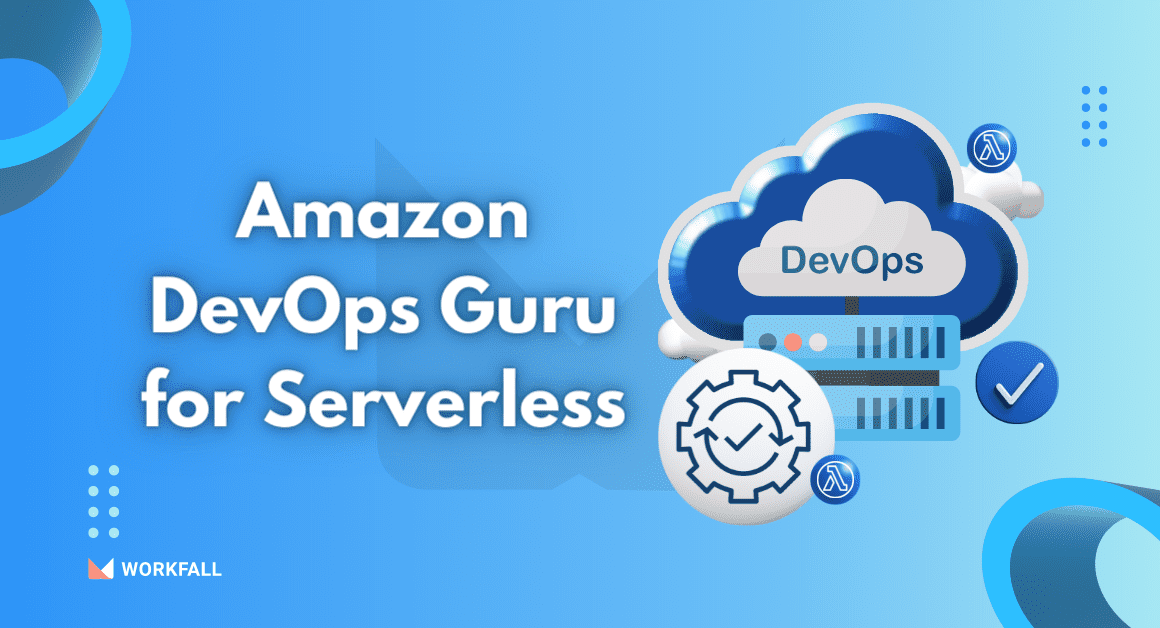In the last couple of years, we have seen a great shift in computation and also software development life cycles. Thus we see a huge demand for DevOps as well as AWS. As a result, the career opportunities for an AWS DevOps Engineer are highly promising. If you want to become an AWS Certified DevOps Engineer, then this blog is for you.
In this blog, we will cover:
- What is DevOps?
- How DevOps is making an impact in the IT industry?
- DevOps Engineer as a career
- What are the job responsibilities of a DevOps Engineer?
- Roadmap to Becoming an AWS DevOps Engineer
- Why should you become an AWS-certified DevOps Engineer?
- Salary of AWS-certified DevOps Engineers
- What next after becoming an AWS DevOps expert?
What is DevOps?
In these fast-paced times, clients want faster delivery of the software product, so to stay competitive in the market the IT development companies are expected to deploy quality software in defined timelines. In this situation, the roles of software developer and system admin have become very critical and a lot of juggling of responsibilities happens between the two teams.
In the traditional software development scenario, once the development work is done, the developer team may have to wait for weeks for the product to get deployed. Any delay may put pressure on the developers because they may have to manage some re-adjust dependent activities like – new features, pending code, old code, etc. when the product is put into the production environment, the product may generate some errors because the developer writes code in the development environment which may be different from the production environment!
The operations team, on the other hand, is responsible for maintaining and assuring the uptime of the production environment. This is more challenging because the tools that were used to manage the earlier amount of servers may not be sufficient to cater to the needs of the upcoming and growing number of servers. In this case, the ops team needs to make slight changes in the code so that it fits into the production environment, which can cause some delays. Here, the ops team may feel loaded with more responsibilities and it may seem like developers have pushed their responsibilities to the operations team!
With the above scenario, you may come to realize that none of the sides are wrong. It’s only the development process, which can be streamlined to be better!
Think of the process where development and operations teams could work together and can:
- Break down the wall between their work
- Share responsibilities
- Start thinking alike
- Work as a team
This is what DevOps does, it helps software developers and operations in sync to improve productivity. The word ‘DevOps’ is a combination of two words, ‘Development’ and ‘Operations.’
DevOps is a collaboration between Development and IT Operations to make software production and deployment in an automated & repeatable way.
It’s a simplified process that uses best practices and DevOps tools to reduce overhead and downtime while increasing innovation opportunities.
“Through automated pipelines (CI/CD), DevOps channels the entire process from the idea on a whiteboard to the real product in the hands of the consumer.”
How DevOps is making an impact in the IT industry?
From the planning stage to delivery and automation of the delivery process, DevOps is utilized to improve communication between all stakeholders. IT industry has seen many benefits of DevOps adoptions, some of the benefits of adopting DevOps are as follows:
- Organizations that use DevOps can deliver with maximum speed, functionality, and innovation.
- Supports continuous and faster software delivery.
- Provides more stable operating environments.
- Improved communication and collaboration.
- Less complex problems to fix, fewer failures, so more time to innovate rather than fix/maintain.
- Customer satisfaction has improved, and cloud/server infrastructure expenses have decreased.
- Faster delivery helps in increasing sales and more stable operating environments.
/PRNewswire/ — NEW YORK, April 29, 2020 — The global DevOps market is expected to expand by US$11.1 billion, with a compounded growth rate of 23.3 percent. One of the segments evaluated and sized in this report, Solutions, has a growth potential of about 21.9 percent. Because of the shifting forces that underpin this expansion, it’s vital for enterprises in this sector to stay on top of the market’s pulse. Solutions will result in robust gains, giving significant momentum to worldwide growth, with a market cap of about US$8.1 billion by 2025.
DevOps Engineer as a career
DevOps has made a drastic change in previous years. It has established a new culture that many organizations are adopting nowadays in order to accelerate the delivery process. It is growing continued interest in cloud computing, AI, and Data Science. However, because DevOps is more than a technical transformation; it is also a complete culture shift, going DevOps in one night is impossible. Getting into DevOps is a never-ending path of discovery and learning. So, how can you rely on a DevOps career in such a situation?
The answer is – DevOps has revolutionized the whole software industry where a single person with restricted skills has been transformed with multidisciplinary skills like configuration, coding, testing, building, infrastructure, and release. Since DevOps is not confined to a particular technology, DevOps professionals have the freedom to work continuously, integrate and automate various technologies.
During the last few years, DevOps jobs increased up to 72 percent, and demand for DevOps skills increased up to 55 percent.
Interestingly, most companies consider DevOps skills when hiring IT professionals. In addition, due to the higher acceptance rate and maturity of DevOps development processes, the United States has the highest salary in DevOps when compared to other countries of the world.
So if you are choosing DevOps as a career, you are actually choosing the right career!
Many big IT companies are always looking for DevOps engineers. So if you are a DevOps engineer, you will be in high demand. At Workfall we are always looking for AWS-certified DevOps engineers who can join us as partners and can work for our prestigious offshore clients. To know more about us, visit our website Workfall
What would a DevOps Engineer’s responsibilities involve?
Following are some expected roles, responsibilities, and skills that are expected from a DevOps engineer:
- Deployment, automation, maintenance, and management of the production system.
- Ensuring higher levels of availability, scalability, and performance of application code and infrastructure.
- Development of various ways to ensure that the process adheres to DevOps standards.
- Ability to troubleshoot and solve problems in systems across platform and application domains.
- Ability to efficiently manage projects using open, standards-based platforms
- Analyze, design, and evaluate automation scripts & systems
- Ensuring critical resolution of system issues by using the best cloud security solutions services
- Soft skills, problem-solving ability, and quick-learner
- Should be able to work independently as well as in collaboration with development and operations teams and other stakeholders in the project.
Roadmap to Become an AWS DevOps Engineer
To become a successful DevOps engineer, one has to learn different programming languages, Server administration, Cloud computing, Databases, etc. The following image highlights different skills which have to be adopted by DevOps engineers. In our upcoming blog, we will be writing about each skill in detail. Stay tuned!
What are the benefits of becoming an AWS-certified DevOps Engineer?
AWS is the predominant player in the global cloud business with 33% of the market share followed by Microsoft, Google, Alibaba, and IBM with 18%, 9%, 6%, and 5% respectively (Source of data – Statista Research Group) and also brings in many employment opportunities.
Organizations that are already using AWS have realized the importance of DevOps and therefore, they need skilled AWS DevOps professionals to provide the necessary boost to their productivity. The AWS Certified DevOps Engineer has technical expertise in provisioning, operating, and managing distributed application systems on the AWS platform.
You must have to complete the Associate-level AWS Certified Developer or AWS Certified SysOps Administrator certification exams and should have two or more years of experience provisioning and managing AWS architectures before writing this certification.
There are many different job roles available in the DevOps landscape and promising long-term professional development opportunities. AWS Certified DevOps-certified professionals can go for different roles, such as DevOps consultants, infrastructure architects, and automation architects. The sky is the only limit for AWS DevOps professionals.
At Workfall we are always looking for AWS-certified DevOps engineers who can join us as partners and can work for our prestigious offshore clients. To know more about us, visit our website Workfall
Salary of AWS-certified DevOps Engineers
As AWS DevOps Engineers are in high demand, it is enough to think of starting a career as an AWS DevOps engineer. Most likely, a calculation of the average yearly DevOps engineer compensation on the AWS platform would dispel your suspicions!
The average annual AWS DevOps engineer pays AWS is $124,190, according to ZipRecruiter. (For the United States)
According to payscale.com, in the US, a DevOps engineer gets paid an average of $ 93,062 per year.
What next after becoming an AWS DevOps expert?
Learning and mastering the DevOps tools, practices, and AWS DevOps certification, opens up the door to new roles and challenges for you to grow in the IT industry. You can opt for different roles including:
- Code Release Manager
- DevOps Evangelist
- Automation Architect
- Software Developer/Tester
- Security Engineer
- Experience Assurance
DevOps is an umbrella and covers many areas, it is best to focus on your key skills, keep learning different technologies and tools, and keep growing.
The golden advice is, to understand the problem/challenge in your current project and then find a DevOps solution for the same. This is the future!
Conclusion
In this blog, we’ve outlined all of the key factors and considerations you should make before deciding on DevOps. It is the future approach for software development. More and more companies are accepting this methodology as it is evolving with new tools and technologies. There is a huge demand for AWS DevOps engineers! At Workfall we are always looking for AWS-certified DevOps engineers who can join us as partners and can work for our prestigious offshore clients. To know more about us, visit our website Workfall. We will discuss more DevOps and related topics in our upcoming blog. Stay tuned to keep getting all updates about our upcoming new blogs on AWS and relevant technologies.
Meanwhile …
Keep Exploring -> Keep Learning -> Keep Mastering
This blog is part of our effort toward building a knowledgeable and kick-ass tech community. At Workfall, we strive to provide the best tech and pay opportunities to AWS-certified talents. If you’re looking to work with global clients, and build kick-ass products while making big bucks doing so, give it a shot at workfall.com/partner today.


